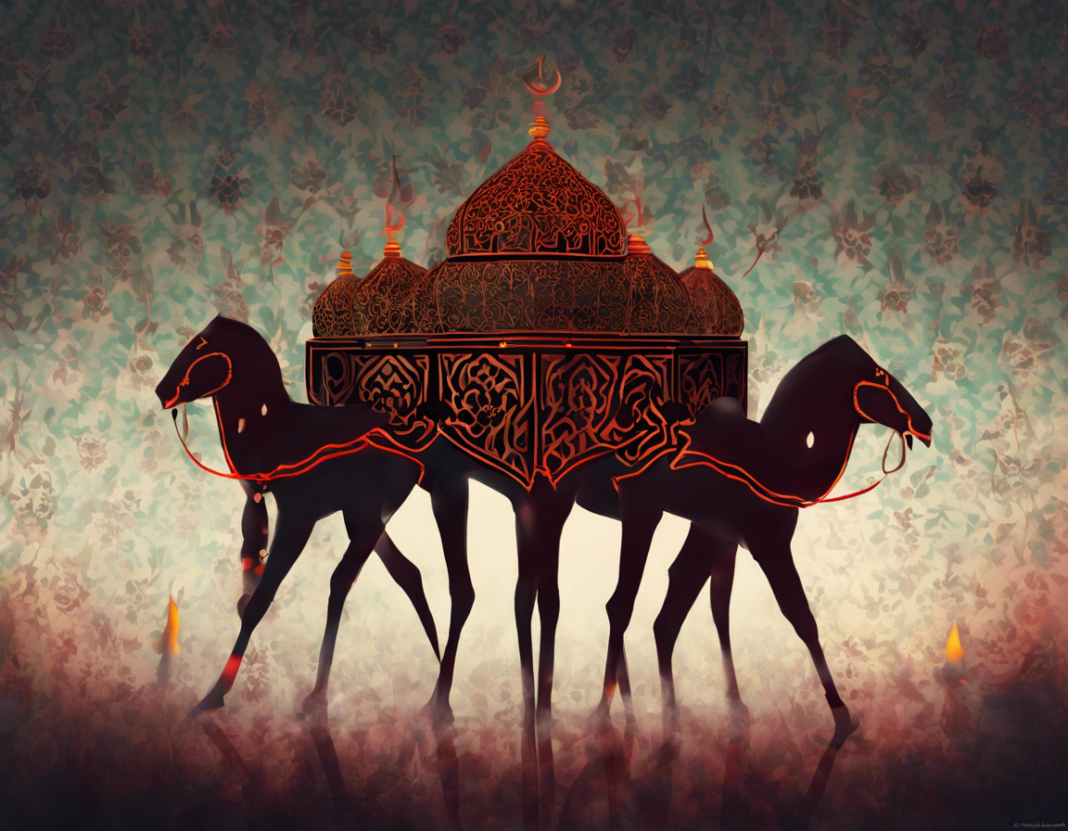Introduction
As we approach the month of Muharram in 2023, it is important to reflect on the significance of this sacred month in the Islamic calendar. Muharram holds great importance for Muslims around the world, particularly for its historical and religious significance. In this article, we will explore the significance of Muharram, the observances associated with it, and why it holds a special place in the hearts of Muslims.
Significance of Muharram
Muharram is the first month of the Islamic lunar calendar and is considered one of the four sacred months in Islam, along with Rajab, Dhu al-Qi’dah, and Dhu al-Hijjah. The word “Muharram” itself means “forbidden” and denotes the sacredness of this month. It holds a special significance for Muslims for various reasons:
1. Observance of Ashura
The 10th day of Muharram, known as Ashura, holds particular significance for Muslims. It is a day of both commemoration and reflection, with different meanings for different sects within Islam. For Sunni Muslims, Ashura marks the day when the Prophet Musa (Moses) and his followers were saved from the Pharaoh by the parting of the Red Sea. For Shia Muslims, Ashura commemorates the martyrdom of Imam Hussein, the grandson of the Prophet Muhammad, at the Battle of Karbala in 680 AD.
2. Spiritual significance
Muharram is a month of reflection, self-purification, and spiritual growth for Muslims. It is a time to remember the sacrifices of the Prophet’s family and companions and to draw inspiration from their steadfastness and faith in the face of adversity.
3. Fasting and acts of charity
Many Muslims choose to fast during the month of Muharram, particularly on the 9th and 10th days (Tasua and Ashura) as recommended by the Prophet Muhammad. Fasting during Muharram is believed to bring blessings and forgiveness from Allah. Additionally, acts of charity and kindness are encouraged during this month as a way to seek spiritual rewards and blessings.
Observances of Muharram
During the month of Muharram, Muslims engage in various observances to commemorate the historical events and spiritual significance associated with this sacred month. Some of the common observances include:
1. Mourning processions
Shia Muslims, in particular, participate in mourning processions during Muharram, where they reenact the events of the Battle of Karbala and express their grief over the martyrdom of Imam Hussein. These processions often involve recitations of elegies, beating of the chest, and flagellation as acts of mourning.
2. Majlis
Majlis, or gatherings held to remember the martyrdom of Imam Hussein and his companions, are a common observance during Muharram. Scholars and speakers often deliver sermons and lectures on the tragic events of Karbala, highlighting the lessons of sacrifice, courage, and faith for the attendees.
3. Blood donation drives
In some communities, Muharram is also a time for organizing blood donation drives as a way to give back to society and help those in need. This act of charity is seen as a reflection of the spirit of sacrifice exemplified by Imam Hussein and his companions.
FAQs (Frequently Asked Questions)
Q: Why is fasting on the 10th day of Muharram (Ashura) recommended in Islam?
A: Fasting on the 10th day of Muharram, known as Ashura, is recommended as a way to seek forgiveness for sins and to commemorate the day when the Prophet Musa and his followers were saved from the tyranny of the Pharaoh.
Q: What is the significance of the Battle of Karbala in Islamic history?
A: The Battle of Karbala, which took place on the 10th of Muharram in 680 AD, marked the martyrdom of Imam Hussein, the grandson of the Prophet Muhammad. It is considered a pivotal event in Islamic history that symbolizes the struggle against injustice and oppression.
Q: How do Sunni Muslims observe Muharram differently from Shia Muslims?
A: Sunni Muslims commemorate Muharram by fasting on the 10th day (Ashura) and reflecting on the virtues of fasting. Shia Muslims, on the other hand, emphasize mourning and lamentation for the martyrdom of Imam Hussein at Karbala.
Q: Are there any restrictions or prohibitions during the month of Muharram?
A: While there are no specific prohibitions during Muharram, Muslims are encouraged to engage in acts of worship, reflection, and charity during this sacred month. Excessive celebrations or festivities are generally avoided out of respect for the solemnity of Muharram.
Q: What is the significance of water in the rituals of Muharram?
A: Water holds symbolic significance in the rituals of Muharram, particularly in commemorating the thirst suffered by Imam Hussein and his companions at Karbala. Providing water to fellow mourners is considered a noble act of charity and remembrance during this sacred month.
In conclusion, Muharram is a month of reflection, remembrance, and spiritual growth for Muslims worldwide. It serves as a reminder of the sacrifices made by the Prophet’s family and companions and encourages believers to embody the values of courage, sacrifice, and steadfastness in the face of adversity. Observing the traditions and rituals of Muharram can be a deeply enriching and spiritually rewarding experience for those who choose to participate.
